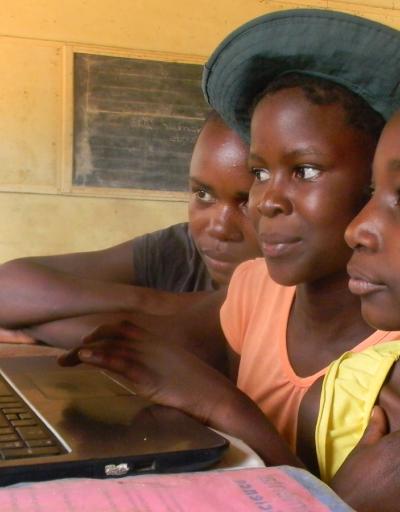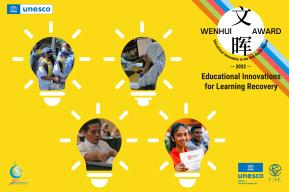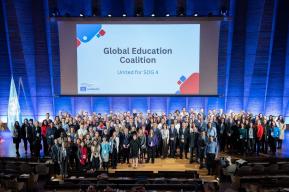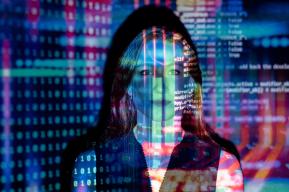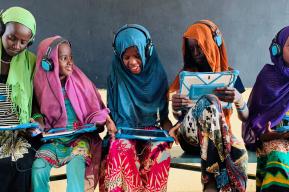The Coalition has been supporting countries in scaling up distance learning and reaching the children and youth most at risk, to ensure #LearningNeverStops.
Senegal, for example, like so many other countries in Africa and across the globe, saw its schools and universities shut their doors due to the health crisis. One basic challenge it faced in providing alternatives to in-person classes was the unequal access to equipment and connectivity throughout the country.
Within the Coalition framework, a partnership between Senegal’s Ministry of National Education, UNESCO and Coalition members Huawei and Microsoft made it possible for 82,000 teachers and 500,000 learners to enroll on the ministry’s Distance Learning Platform; 3.5 million learners and teachers are expected to sign up with support from Microsoft. In addition, UNESCO helped train 200 teachers to be ‘master trainers’, acquiring the digital skills needed for distance learning. They in turn will support and train other teachers, with the overall aim of benefiting 100,000 students in the country.
We have to diversify our training offers, our didactic and pedagogical methods, and try to bring them in line with today’s world, where the digital technology plays a major role.
Elsewhere in sub-Saharan Africa, Coalition member Orange has been providing free internet access to accredited learning platforms in Burkina Faso, Guinea, Mali and the Democratic Republic of the Congo. Similar packages are planned for Botswana, Cameroun, Côte d’Ivoire, Liberia and Madagascar. The initiative is due to be extended to Egypt, Jordan, Morocco and Tunisia
Aiming towards connectivity for all is an important imperative, especially when our data shows that 43 per cent of the world’s households do not have access to the internet.


